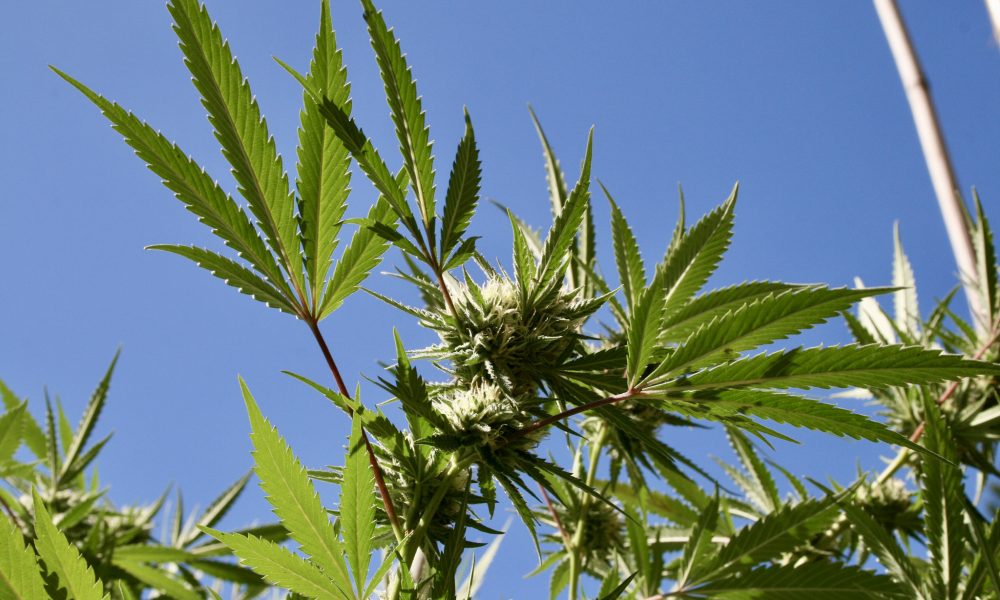As congressional lawmakers continue to pursue a bill to federally protect banks that work with state-legal marijuana businesses, a bipartisan pair of Pennsylvania state senators have announced that they will soon be introducing “companion” legislation Commonwealth.
Sens. John DiSanto (R) and Sharif Street (D) distributed a cosponsorship memo to colleagues on Tuesday unveiling their plan to file a bill that would safeguard banks and insurers against being penalized by state regulators. The senators serve as chairman and minority chairman of the Banking & Insurance Committee.
While financial institutions are generally more weary of facing consequences from federal regulators under the current policy of prohibition, the state-level reform could further empower banks to work with Pennsylvania’s medical cannabis market as congressional legislators try to advance the federal policy change.
The senators noted that there is 2014 federal enforcement guidance in place for banks and the marijuana industry, but “adherence to this guidance does not immunize financial institutions from prosecution” and “most will not bank cannabis-related businesses without legislative action.”
“As a result, many cannabis-related businesses are locked out of the banking system without access to financial tools and are forced to operate exclusively in cash,” the memo says. “This is a public safety risk as dispensaries are targets for robberies that put patients, employees, and communities at risk.”
There’s not much the Pennsylvania legislature can do to get cannabis banking reform enacted at the federal level, but the pending legislation would make it so no state agency could “prohibit, penalize or otherwise discourage a financial institution or insurer from providing financial or insurance services to a legitimate cannabis-related business or the business associates of a legitimate cannabis-related business,” according to preliminary draft language of the bill that was shared with Marijuana Moment.
—
Marijuana Moment is already tracking more than 1,000 cannabis, psychedelics and drug policy bills in state legislatures and Congress this year. Patreon supporters pledging at least $25/month get access to our interactive maps, charts and hearing calendar so they don’t miss any developments.![]()
Learn more about our marijuana bill tracker and become a supporter on Patreon to get access.
—
It also says agencies cannot “recommend, incentivize or encourage a financial institution or insurer” to not provide services just because a business is associated with marijuana.
Further, state agencies could “not take adverse or corrective supervisory action on a loan made to a legitimate cannabis-related business,” the draft text says.
In the new cosponsorship memo, DiSanto and Street stressed that banking difficulties in the cannabis space “are not limited to just those businesses that have direct contact with the cannabis plant, but also those entities that receive payments from a cannabis firm such as real estate owners, security firms, utility providers, vendors, and employees.”
Congressional lawmakers have made similar points as they’ve pushed for the enactment of the Secure and Fair Enforcement (SAFE) Banking Act, which has passed the House five times in some form now but has stalled in the Senate.
That bill is “designed to reduce cash-motivated crimes, improve tax collections, and spur economic growth and development,” the Pennsylvania senators said. “Access to the financial system for state legal cannabis businesses further ensures a safe and well-regulated market.”
U.S. Rep. Ed Perlmutter (D-CO), sponsor of the SAFE Banking Act, has said in recent weeks that he’s “irritated” that Congress hasn’t been able to pass his bill with Democratic majorities in both chambers and control of the White House. However, while he’s retiring from Congress at the end of this session, he said last week that he’s “gonna get that darn thing passed this year.”
Back in Pennsylvania, Street is also the sponsor of a bipartisan bill that he introduced in October to legalize marijuana for adult use in the state. Getting comprehensive reform like that passed in the current GOP-controlled legislature would be a steep task, however.
In the interim, Lt. Gov. John Fetterman (D), who is running for U.S. Senate this year, said one of his key goals in his final year in office is to ensure that as many eligible people as possible submit applications to have the courts remove their cannabis records and restore opportunities to things like housing, student financial aid and employment through an expedited petition program.
Pennsylvania lawmakers could also take up more modest marijuana reform proposals like a bill filed late last year to expand the number of medical marijuana cultivators in the state, prioritizing small farms to break up what she characterized as a monopoly or large corporations that’s created supply problems.
Rep. Amen Brown (D) separately announced his intent to file a legalization bill that he’ll be working on with Sen. Mike Regan (R), who expressed his support for the policy change a day earlier.
Additionally, another pair of state lawmakers—Reps. Jake Wheatley (D) and Dan Frankel (D)—formally unveiled a legalization bill they’re proposing last year.
Philadelphia voters also approved a referendum on marijuana legalization in November that adds a section to the city charter saying that “the citizens of Philadelphia call upon the Pennsylvania General Assembly and the Governor to pass legislation that will decriminalize, regulate, and tax the use, and sale to adults aged 21 years or older, of cannabis for non-medical purposes.”
Gov. Tom Wolf (D) said last year that marijuana legalization was a priority as he negotiated the annual budget with lawmakers. However, his formal spending request didn’t contain legislative language to actually accomplish the cannabis policy change.
The governor, who signed a medical cannabis expansion bill in June, has repeatedly called for legalization and pressured the Republican-controlled legislature to pursue the reform since coming out in favor of the policy in 2019. Shortly after he did that, a lawmaker filed a separate bill to legalize marijuana through a state-run model.
A survey from Franklin & Marshall College released last year found that 60 percent of Pennsylvania voters back adult-use legalization. That’s the highest level of support for the issue since the firm started polling people about it in 2006.
An attempt to provide protections for Pennsylvania medical marijuana patients from being charged with driving under the influence was derailed in the legislature last year, apparently due to pushback by the state police association.
Bipartisan Congressional Lawmakers Tell DEA To Allow Psilocybin Treatment For Terminal Patients
Medical Disclaimer:
The information provided in these blog posts is intended for general informational and educational purposes only. It is not a substitute for professional medical advice, diagnosis, or treatment. Always seek the advice of your physician or other qualified healthcare provider with any questions you may have regarding a medical condition. The use of any information provided in these blog posts is solely at your own risk. The authors and the website do not recommend or endorse any specific products, treatments, or procedures mentioned. Reliance on any information in these blog posts is solely at your own discretion.






